Vistra, Energy Harbor deal finally closes

Vistra this week completed its acquisition of Energy Harbor Corp., a move the company announced almost exactly a year ago with a $3.43 billion price tag.


Vistra this week completed its acquisition of Energy Harbor Corp., a move the company announced almost exactly a year ago with a $3.43 billion price tag.
Texas-based Vistra Corporation was hoping to get the go-ahead from the Federal Energy Regulatory Commission this month for its proposed acquisition of Energy Harbor’s nuclear assets, but on October 13, the agency issued an order extending its review of the deal (called “tolling the time” in bureaucratese) to April 11, 2024. Currently down one seat, the four-member FERC voted 3–1 for the time extension, with the lone dissent coming from commissioner James Danly.
The Nuclear Regulatory Commission has approved the transfer of the operating licenses for four reactors and their associated spent fuel storage facilities from Energy Harbor Nuclear Corporation to Vistra Operations Company, the agency announced September 29.
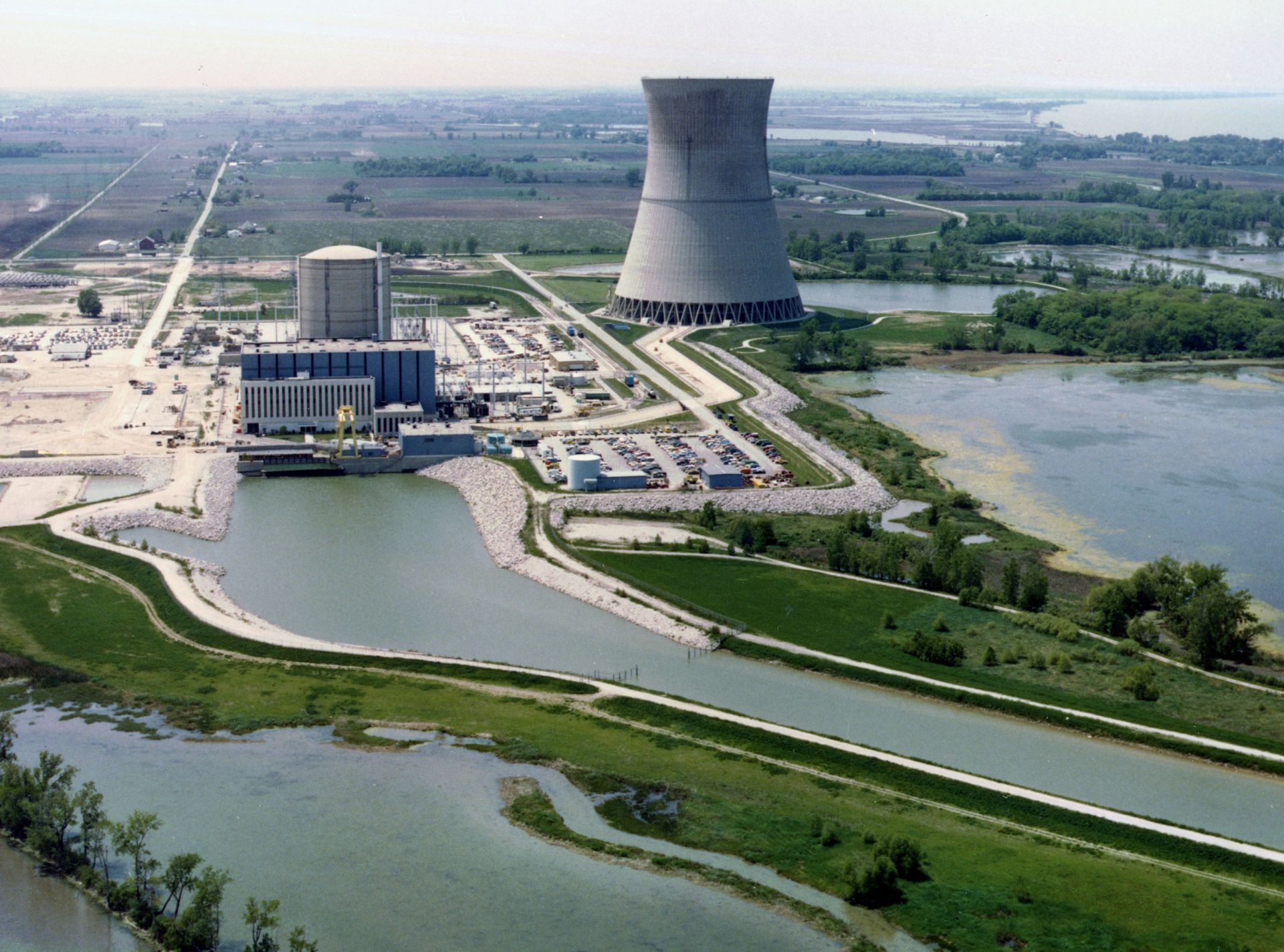
In a filing Monday with the Federal Energy Regulatory Commission, Vistra Corporation committed to divesting itself of two power generation assets to help alleviate concerns over its proposed acquisition of Energy Harbor.
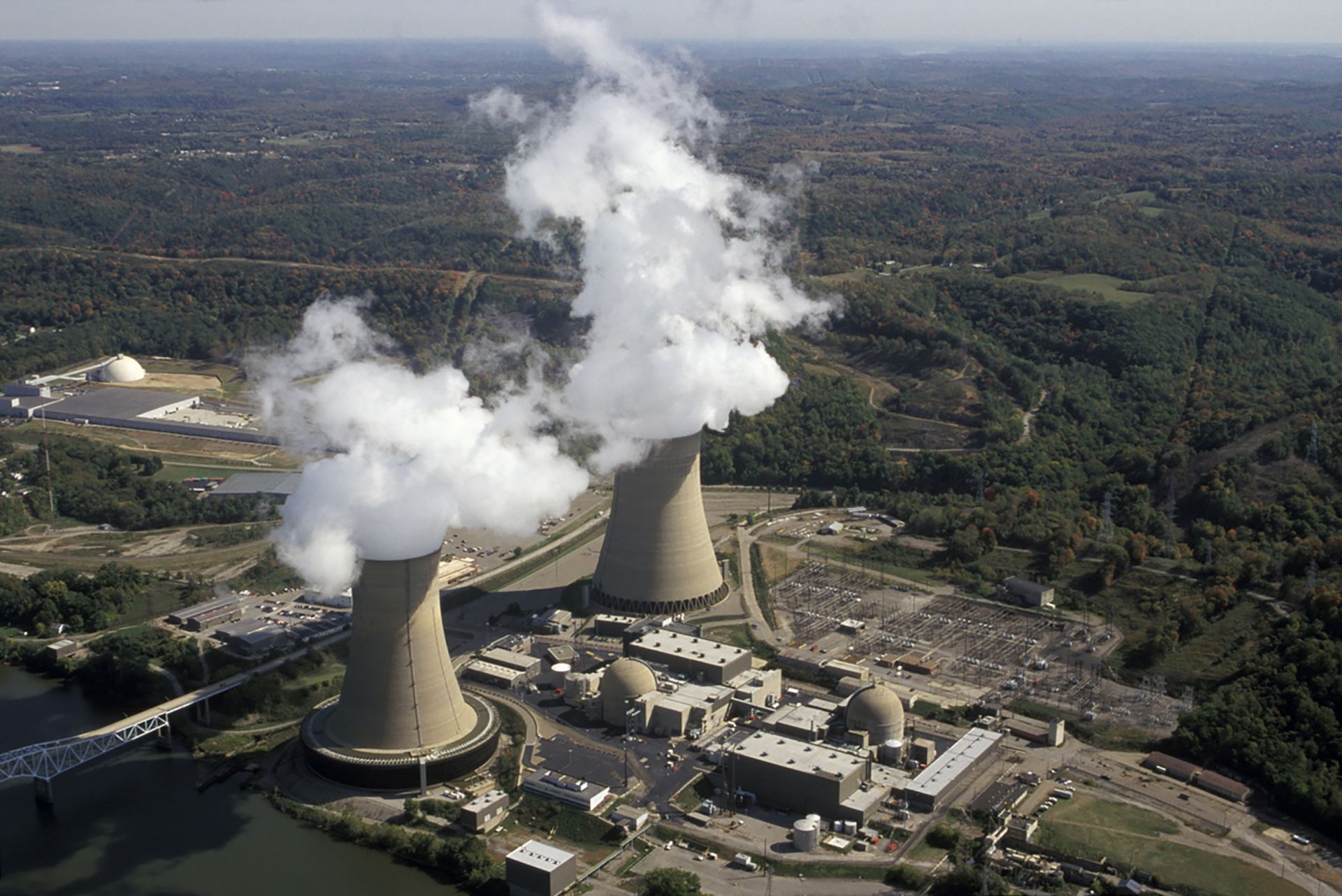
The Department Justice earlier this week filed comments with the Federal Energy Regulatory Commission regarding Vistra Corporation’s proposed acquisition of Energy Harbor, the Ohio-based owner and operator of the Beaver Valley, Davis-Besse, and Perry nuclear plants. Echoing misgivings raised in June by PJM Interconnection’s market monitor Monitoring Analytics regarding the possible exercise of undue market power as a result of the deal, the DOJ Antitrust Division’s 16-page document urges FERC to carefully review the proposal to ensure it will not substantially lessen competition and increase wholesale electricity prices in the PJM region.
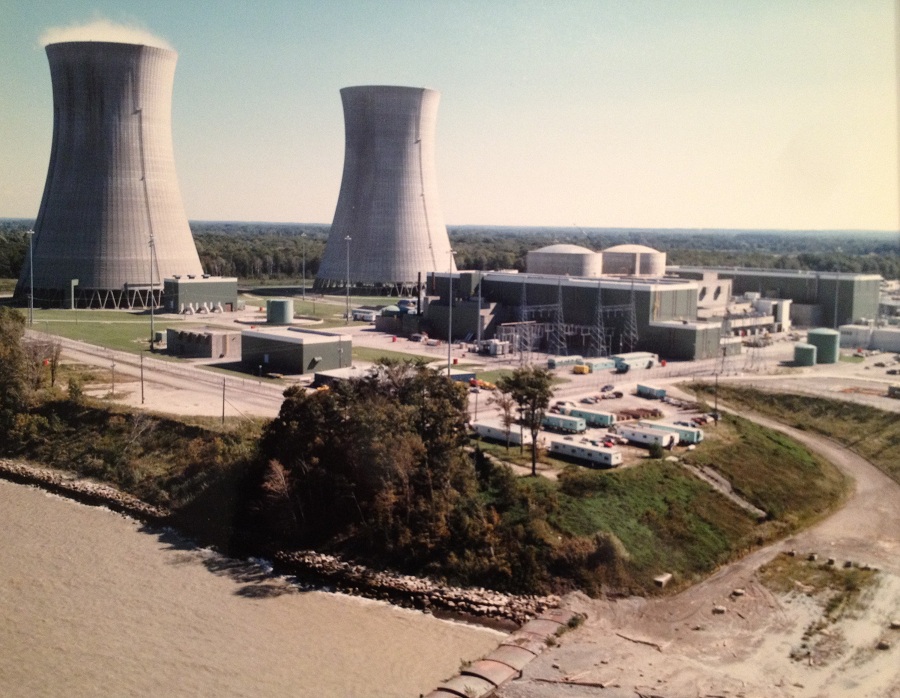
Energy Harbor has filed its initial license renewal application for the Perry nuclear power plant, requesting an additional 20 years of operation for the facility, the Nuclear Regulatory Commission announced yesterday. Dated July 3, the 2,427-page application is now available on the agency’s website.
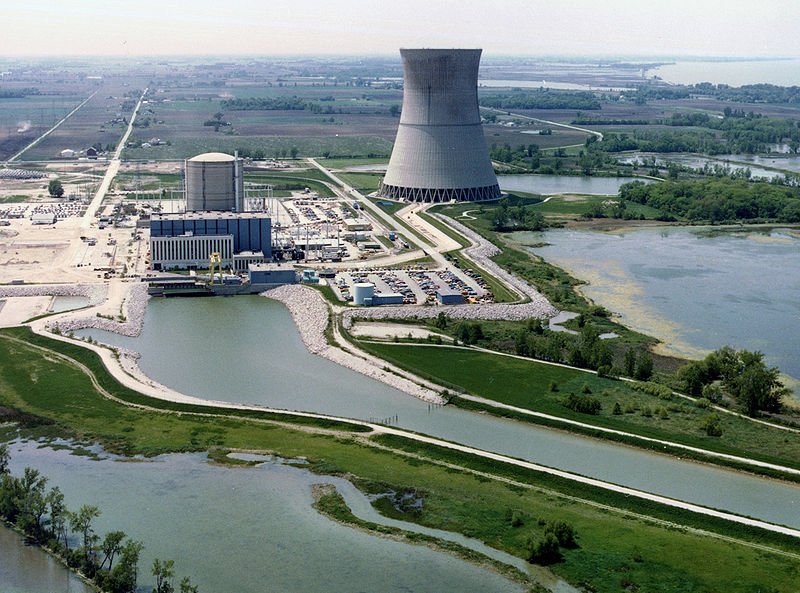
The Great Lakes Clean Hydrogen Hub coalition (GLCH) has submitted an application for funding from the $8 billion Department of Energy program authorized by the Bipartisan Infrastructure Law to support the creation of regional clean hydrogen hubs, nuclear plant owner/operator Energy Harbor announced on May 2.
 For those who missed the recent Conference on Nuclear Training and Education: A Biennial International Forum (CONTE 2023), which was held on February 6–9 in Amelia Island, Fla., ANS hosted on March 9 an online panel discussion recapping selected highlights. The conference had the theme of “Maintaining Excellence Today—Building the Nuclear Workforce for Tomorrow!”
For those who missed the recent Conference on Nuclear Training and Education: A Biennial International Forum (CONTE 2023), which was held on February 6–9 in Amelia Island, Fla., ANS hosted on March 9 an online panel discussion recapping selected highlights. The conference had the theme of “Maintaining Excellence Today—Building the Nuclear Workforce for Tomorrow!”
Four panelists summarized their CONTE presentations in the online discussion: Annaliese Piraino, instructional technologist at Energy Harbor’s Beaver Valley nuclear power plant; Sterling Parmenter, senior maintenance and technical instructor at Constellation Energy’s Nine Mile Point nuclear power plant; Lori Brady, senior director of human resources and training and development at the Nuclear Energy Institute; and David Helling, senior training advisor at Westinghouse Electric Company. The online event was moderated by Billy Wilson, senior engineer in nuclear training at Ontario Power Generation.
For more info on the CONTE meeting, visit CONTE 2023. Also available online is the recap webinar.

Texas-based Vistra Corporation, owner of the Comanche Peak nuclear plant, has announced a $3.43 billion deal to acquire Energy Harbor, the Ohio-based owner and operator of the Beaver Valley, Davis-Besse, and Perry nuclear facilities.
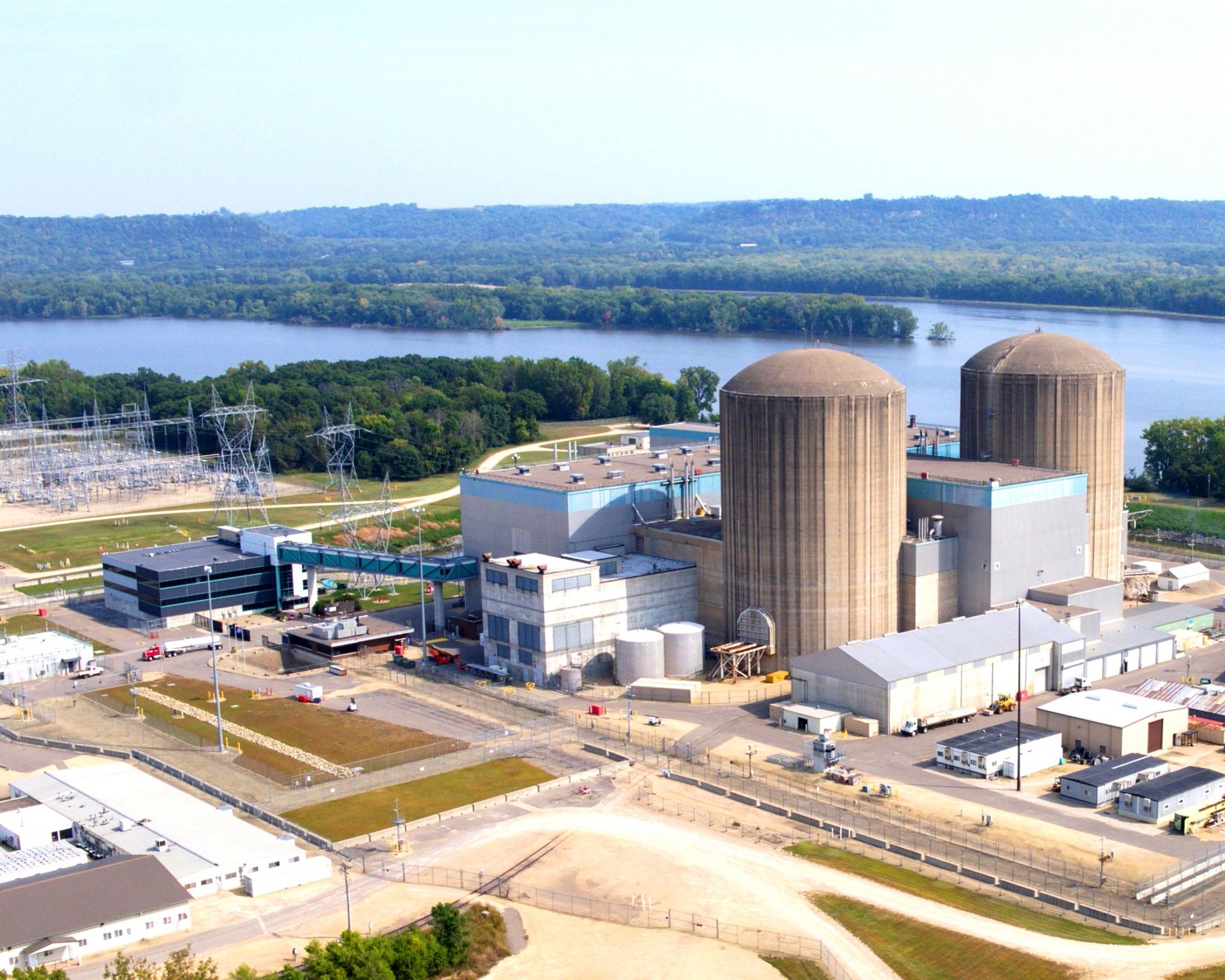
Clean energy technology firm Bloom Energy has announced plans to install a 240-kW electrolyzer at Xcel Energy’s Prairie Island plant in Red Wing, Minn., to demonstrate the benefits of producing hydrogen with nuclear power. (One of Xcel’s two nuclear plants, Prairie Island houses twin 550-MWe pressurized water reactors.)

Energy Harbor has signed a memorandum of understanding with blockchain company Standard Power to develop a large-scale carbon-free data infrastructure operation adjacent to the Beaver Valley nuclear plant, located in Shippingport, Pa.
In its May 9 announcement, Energy Harbor described Standard Power as “a leading infrastructure service provider for advanced data processing companies and a leading hosting provider for blockchain mining companies.”
Energy Harbor is based in Akron, Ohio.
,_July_2020.jpg)
Energy Harbor—owner and operator of the Beaver Valley, Davis-Besse, and Perry nuclear power plants—recently announced its plan to become a carbon-free energy infrastructure and supply firm in 2023. Energy Harbor is based in Akron, Ohio.
 The 2021 Pennsylvania Climate Action Plan recommends 18 “strategies” for realizing Gov. Tom Wolf’s goal of an 80 percent reduction in the state’s greenhouse gas emissions (from 2005 levels) by 2050. Two of the strategies are for the electricity-generation sector: (1) maintain operation at Pennsylvania’s nuclear power plants through at least 2050, and (2) achieve a 100 percent carbon-free grid by 2050.
The 2021 Pennsylvania Climate Action Plan recommends 18 “strategies” for realizing Gov. Tom Wolf’s goal of an 80 percent reduction in the state’s greenhouse gas emissions (from 2005 levels) by 2050. Two of the strategies are for the electricity-generation sector: (1) maintain operation at Pennsylvania’s nuclear power plants through at least 2050, and (2) achieve a 100 percent carbon-free grid by 2050.
In addition to focusing on electric power generation, the plan includes strategies for other major carbon-emitting sectors in the fossil fuel–heavy state, including transportation, industry, agriculture, and residential and commercial buildings. For each strategy, emission reductions, costs, and benefits in jobs and economic growth are quantified and health and social benefits analyzed.

In an action that could make Pennsylvania’s nuclear plants more cost-competitive in power markets, the state’s Independent Regulatory Review Commission has approved a regulation that would allow Pennsylvania to join the Regional Greenhouse Gas Initiative (RGGI), a cooperative effort of Northeastern and Mid-Atlantic states designed to cap and reduce carbon emissions from fossil fuel–fired power plants.